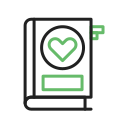Focus Sprints and Rest Cycles
Fifty-two minutes of single-task focus, seventeen minutes of recovery: water, stretch, a brief walk, or mindful breathing. Silence notifications. End with a quick note summarizing wins, then celebrate with a smile.
Focus Sprints and Rest Cycles
Rest is not scrolling. Try calf raises, doorway chest stretches, or a short balcony walk. Finish with two eye-relaxation exercises. Share your playlist for movement breaks that feel fun, never forced.
Focus Sprints and Rest Cycles
Announce focus hours to your team, set status as “Heads Down,” and keep an emergency channel for true urgencies. Track interruptions for a week, then renegotiate norms. Invite teammates to experiment together.






